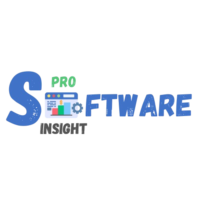The Ultimate Guide to Volunteer Management Software 2025

Table of Contents:
Intro
- What is Volunteer Management Software?
- How Volunteer Management Software Benefits Organizations
- Challenges of Implementing Volunteer Management Software
- Conclusion
Managing volunteers effectively is no easy task. Nonprofits, community organizations, and businesses that rely on volunteers often struggle with scheduling, communication, and engagement. This is where volunteer management software comes in—streamlining operations, improving volunteer experiences, and ensuring seamless coordination.
In this guide, we’ll explore what volunteer management software is, how it benefits organizations, the challenges of implementation, and answer common questions to help you make an informed decision.
What is Volunteer Management Software?
Volunteer management software (VMS) is a digital tool designed to help organizations efficiently recruit, schedule, track, and communicate with volunteers. It acts as a centralized platform that simplifies administrative tasks, enhances engagement, and provides data-driven insights.
Key features typically include:
- Automated Scheduling – Assign shifts based on availability and preferences.
- Communication Tools – Send emails, notifications, and reminders.
- Time Tracking & Reporting – Monitor volunteer hours for compliance and recognition.
- Application & Onboarding Management – Streamline the recruitment process.
- Engagement & Feedback Mechanisms – Gather insights from volunteers to improve retention.
Whether you’re a nonprofit, educational institution, or corporate social responsibility (CSR) initiative, leveraging this technology can make all the difference in volunteer management.
How Volunteer Management Software Benefits Organizations
1. Boosts Efficiency & Reduces Administrative Burden
Manual volunteer coordination involves spreadsheets, emails, and constant back-and-forth communication. A volunteer tracking system automates these processes, saving valuable time and resources.
2. Enhances Volunteer Experience & Engagement
With user-friendly portals and mobile accessibility, volunteers can easily sign up for shifts, receive updates, and track their contributions. Engaged volunteers are more likely to stay committed.
3. Improves Data Accuracy & Reporting
Organizations can generate real-time reports on volunteer activities, helping them make data-driven decisions. This is particularly useful for grant applications, funding reports, and stakeholder presentations.
4. Facilitates Better Communication
VMS includes integrated messaging tools to keep volunteers informed and motivated. Automated reminders reduce no-shows and ensure smooth event execution.
5. Strengthens Compliance & Security
For organizations handling sensitive volunteer data, having a secure system with access controls and compliance tracking is crucial. Many platforms offer GDPR-compliant and HIPAA-secure solutions.
Challenges of Implementing Volunteer Management Software
- Initial Learning Curve & Adoption: Switching from manual processes to a digital system requires training and adaptation. Ensuring proper onboarding for staff and volunteers is key to a smooth transition.
- Cost Considerations: While there are free and affordable options, some robust platforms come with subscription fees. Organizations need to assess their budget and ROI before committing.
- Customization Limitations: Some software solutions may not fully align with an organization’s unique needs. It’s essential to choose a flexible platform with customizable features.
- Integration with Existing Systems: If an organization already uses CRM, event management, or donor tracking tools, ensuring seamless integration can be a challenge. Choosing software with API capabilities can help mitigate this issue.
FAQs
How do I choose the right VMS?
Identify your organization’s specific needs, budget, and desired features. Look for user reviews, request demos, and ensure it integrates with your existing tools.
Is VMS suitable for small nonprofits?
Yes! Many solutions cater to small organizations with free or affordable pricing tiers.
Can volunteers access the system on mobile devices?
Most modern platforms offer mobile-friendly portals or dedicated apps, making it easier for volunteers to stay engaged.
How secure is volunteer data on these platforms?
Reputable software providers prioritize data security, offering encryption, role-based access, and compliance with privacy regulations.
Can the software help with volunteer recruitment?
Absolutely. Many platforms include application management, background checks, and onboarding tools to streamline recruitment.
Conclusion
Volunteer management software is a game-changer for organizations looking to streamline operations, enhance volunteer engagement, and make data-driven decisions. While challenges exist, selecting the right platform tailored to your needs ensures a smooth implementation.
By embracing this technology, nonprofits and businesses can focus on what truly matters—making a meaningful impact in their communities.
